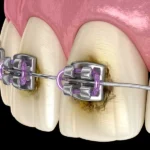How Much Do Veneers Cost in Houston?
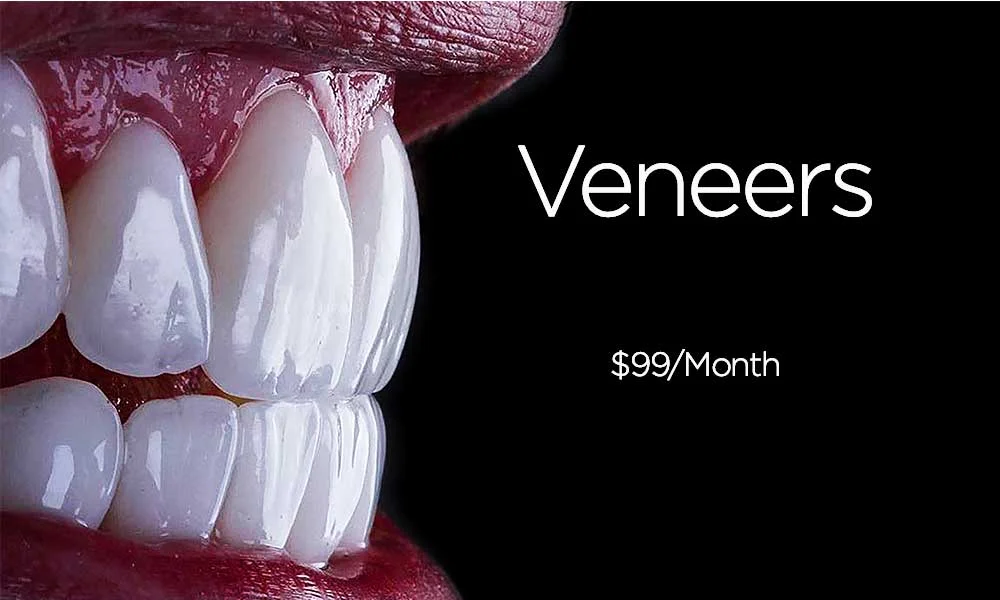
Table of Contents
How Much Do Veneers Cost in Houston?
Dental veneers are made from porcelain, the most commonly used material. Veneers cost in Houston, Texas are between $800 and $1,400 each. The cost depends on how much preparation must be done to make the tooth ready for a veneer plus the cost of laboratory and material. If you need veneers on most or all of your visible teeth, the cost can be between $6,000 and $12,000.
Dental veneers are thin covers that fit permanently over each of your original teeth, giving you the appearance and color you want. Veneers aren’t just for cosmetic purposes. They also are used to hide cracks or damage to teeth and protect them. The strength of the veneer material holds up to regular chewing and biting that your natural teeth have to handle every day.
Because veneers are considered cosmetic dentistry, most dental insurance plans will not cover them. In rare cases, such as when a tooth breaks or cracks and also requires a filling, it may be possible to have insurance cover part of the cost of placing the veneer. If insurance won’t cover your veneers, talk to your dental office about the possibility of a payment plan.
Have you ever been embarrassed by your smile or wished you could have perfect teeth without gaps or stains? There’s a solution for your issues, and it won’t require months of orthodontic work or whitening treatments. Dental veneers can restore your teeth to what they once looked like before becoming chipped or yellowed. Or, if you’ve never had a smile you’re proud of, veneers can create that perfect grin that will give you confidence.
How Much Will Your Insurance Contribute Towards Veneers?
Because getting veneers placed is usually a cosmetic procedure, most dental insurance plans will not cover them. In some rare cases, damage to your teeth that could be covered and protected with a veneer might qualify for coverage. Be sure to call your insurance provider and check to see if any part of getting veneers placed could be covered under your policy.
You want the most knowledgeable dental professionals to fit and place your veneers. The right preparation and positioning can keep your veneers lasting longer and looking better over time. While cost is important, you want to make sure your teeth are in the care of the most experienced dentists.
At Omega Dental Specialists, we can help you set up a payment plan to make getting veneers more manageable. Call us today at 713-322-7474 or fill out our online contact form to learn more about our services and what we can do to make your smile brighter and increase your health and confidence.
What are Veneers?
A veneer is a very thin, durable cover that goes over your original tooth. It’s made to match the contour of your tooth, but it can hide cracks or gaps and cover stains completely. Because veneers are made of porcelain or a tough resin material, they are really strong and can bear the stresses that your natural teeth have to endure every day.
How Are Veneers Placed?
Your teeth need to be prepared for veneers, which involves shaving away a very thin layer of enamel. This helps the veneer bond permanently and lasts for many years, but it cannot be reversed. The process is not particularly difficult, though some patients may wish to have topical dental anesthetic. Note that some brands of very thin veneers, including Lumineers, may not require the removal of enamel to ensure a proper fit.
Your dentist will then create a mold of your teeth so the veneers can be made. If they’ll be made right away, you can wait for them to be ready; if the veneers will be created off-site for you, you’ll have temporary veneers put in.
With multiple appointments, you’ll come back to your dentist’s office when your new veneers are ready. Temporary veneers will be removed and your dentist will use a bonding cement to adhere your new veneers. Once the veneers are in place, you and your dentist can evaluate the fit and color before curing and creating a permanent bond.
What Factors Determine the Veneers Cost?
While veneers don’t require ongoing appointments like other forms of orthodontic work or cosmetic dentistry, you will need to make some choices with your doctor that will influence the final cost.
. Type of Material
The most common type of veneer is made from porcelain because it is durable and closely matches the look of natural teeth. Porcelain veneers average about $1,000 per tooth. While porcelain veneers have been in use for decades, recent technology has created even thinner and longer-lasting versions. You may have heard of the brand Lumineers, a popular type of modern-day porcelain veneers. These are thinner veneers that don’t require as much preparation, and they can cost up to $2,000 per tooth.
Composite resin is another material used for dental veneers. This long-lasting plastic-like material is not as popular as porcelain because it typically does not last quite as long, though improvements in the process ensure they’ll be in your mouth for at least a decade. Composite veneers are usually slightly less expensive, averaging between $800 and $1,500 per tooth.
Other types of veneers are designed specifically to cover damage and protect teeth. These are usually made from a type of composite material, made to fit specifically to your mouth, and cost more than purely cosmetic veneers.
. Number of Teeth
Most patients who have veneers placed elect to put them on all visible teeth. Doing so prevents problems with mismatched veneers and natural teeth and ensures uniformity between the teeth in your smile. For most people, this is between six and 10 teeth. The number of teeth on which you have veneers placed will influence the cost.
. Color Matching
If you’re not getting veneers placed on all of your visible teeth, you may need to make some decisions about color. If you plan to get your natural teeth whitened, you’ll need to undergo that process before getting fitted for veneers.
Remember that any behaviors that caused your teeth to darken, like drinking coffee or smoking, will cause the teeth to stain again and potentially not match your veneers. You may need to have regular whitening treatments designed to keep your original teeth matched to your veneers.
. Number of Appointments
Some dental professionals can offer single-appointment veneers, where you are fit and prepared for the veneers before having them placed the same day. This can be very convenient, but it involves the veneers being constructed from a uniformly colored block of ceramic that is shaped by equipment in your dentist’s office.
If customized veneers must be created to better match your original teeth, this may involve an additional appointment that could add to your overall cost. You’ll also have to wear temporary veneers between appointments.
What are the Pros and Cons of Veneers?
As with any dental procedure, getting veneers placed have benefits and issues. Here are some of the most common positive and negative factors associated with dental veneers:
Pros of Veneers
- You can easily fix minor issues with crooked or chipped teeth, without investing the time and money in orthodontic procedures or losing any of your natural teeth.
- You can choose the shade you want. If you have one discolored tooth from a dental treatment or large filling, you can match it to your other teeth. If any of your teeth are stained from dark beverages, prescription drugs or excessive fluoride, veneers on all your visible teeth can provide a permanent whitening solution.
- You can protect weakened enamel.
- Your gum tissue usually tolerates porcelain well so you are unlikely to have periodontal irritation.
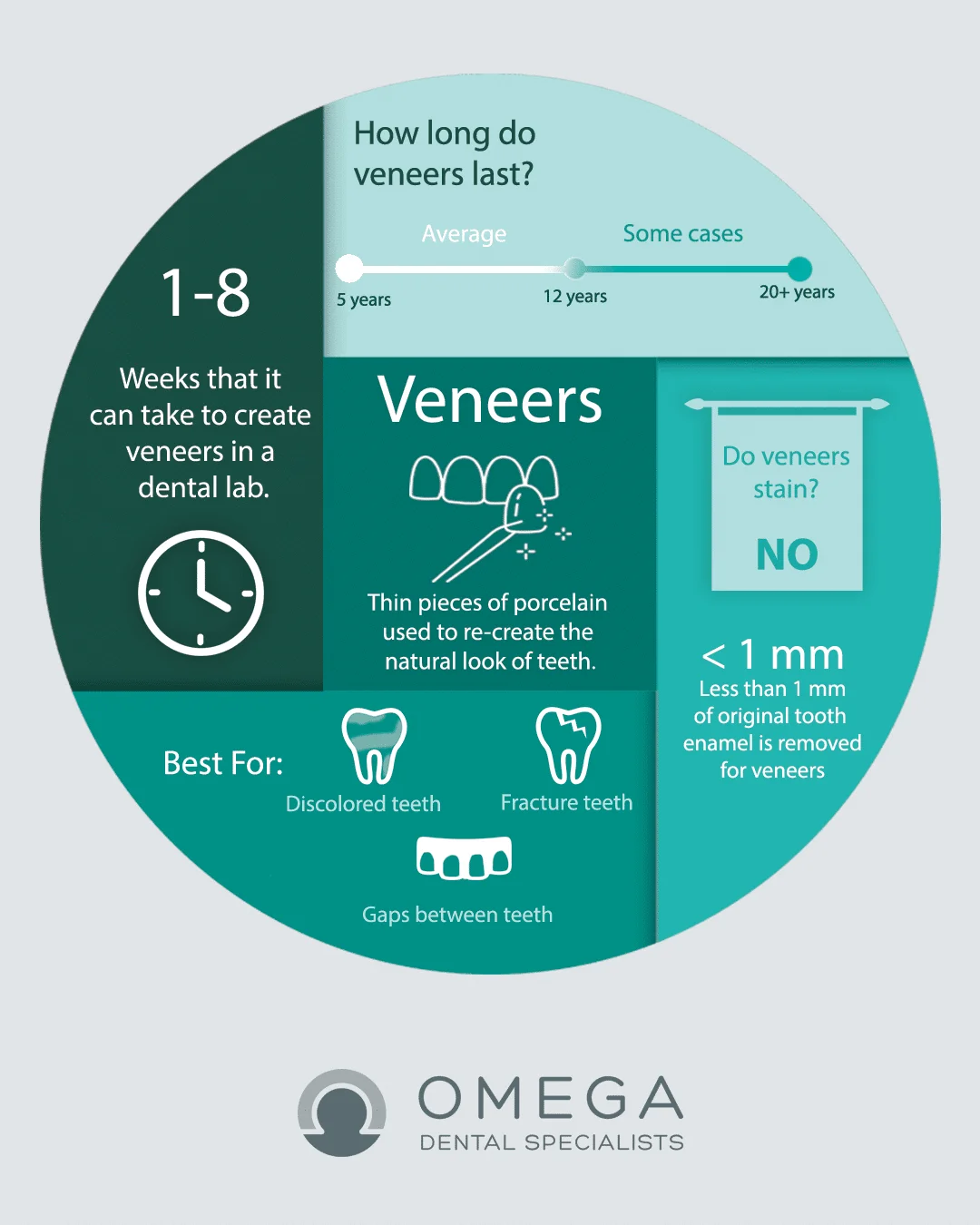
How Long Will Veneers Last?
While today’s veneers last for many years, their lifespan will be dependent on your health and oral hygiene. You’ll need to take excellent care of your mouth to prevent decay and gum disease that can impact the fit and look of your veneers. With the right maintenance, composite veneers can last 7 to 10 years and porcelain veneers can last 15 and possibly as long as 20 years.
People who grind their teeth may have a reduced lifespan for veneers, because the pressure can lead to cracks in the porcelain or composite material. Talk to your dentist about whether your grinding could be a problem or — especially if you grind at night — whether an appliance could help protect your teeth.
When your veneers have reached the end of their lifespan, your dentist will remove them and start the process over. You’ll have new veneers fit and placed, utilizing the latest technology, to last at least another 10 to 20 years.
Drawbacks of Veneers
- Veneers are relatively expensive per tooth.
- Your dentist must remove a bit of enamel from each tooth before applying the veneer, making it an irreversible procedure.
- You may have a temporary or ongoing sensitivity to temperature.
- Veneers are not appropriate for patients who grind their teeth, as the pressure will stress the porcelain and potentially lead to cracks.
If you have questions about the pros and cons of veneers or want to know how veneers will affect your mouth and oral health, talk to your dentist.
While dental veneers are a great option for many, understanding their potential disadvantages will help you know whether veneers are the right option for you. Here are a few things to consider:
- Dental Veneers are permanent, which means once you get them they are not reversible. Individuals who decide to move forward with veneers should ensure that this is something they want and need before committing.
- For the most part, a dentist will try to match the veneers to your natural teeth. However, this does not always end up being the case. If you plan to do something such as to whiten your teeth, you need to do so before getting the veneers. Once the color of the veneers is set there is no changing them.
- Those that have a habit of grinding their teeth should not get dental veneers as this will cause the veneers to chip and crack.
- Dental veneers are not a solution for those who have unhealthy teeth such as gum disease, decay, or weakened teeth.
We all strive to have a smile we can be confident in. Dental veneers are certainly a great option for individuals that qualify for this procedure. While veneers may appear to be costly, the benefits certainly make it worthwhile. If you are interested in getting dental veneers, be sure that you understand the process, know whether you are a candidate and whether dental veneers are the best choice for you.
How Long Do Veneers Last?
While veneers are considered to be permanent, they are not a life-long solution. You will usually need to replace veneers every 7 to 20 years. Their lifespan depends on how careful you are to avoid using your teeth to chew on hard foods or non-food items and whether you grind your teeth.
When it comes time to replace your veneers, your dentist will carefully remove the old veneer, using a local anesthetic if needed, and start the process over. You will not need to have any more of your natural tooth removed when you have replacement veneers made.
Is a Dental Veneer Procedure Right for You?
We all strive for a healthy mouth, which is why dental Veneers (or porcelain veneers) are a great option for individuals that need to address a variety of physical and aesthetic issues. A dental veneer is a process that involves thin pieces of tooth-colored porcelain cemented to the front surfaces of your natural teeth.
Many individuals favor this procedure as the veneers are placed discreetly on the teeth, allowing individuals to possess a natural and confident smile. Additionally, gum tissues tolerate porcelain well and porcelain veneers are stain-resistant. Dental veneers can be a great option for those who have cracked teeth, gapped teeth, misshapen teeth, discolored teeth, and teeth that are worn down.
How Old Do I Have to Be to Get Veneers?
Veneers are appropriate for any patient with minor damage or staining to teeth. However, the mouth should be finished growing in order to ensure the veneers don’t become ill-fitting in early adulthood. In most cases, males at age 18 and females at age 16 are suitable candidates for veneers if they meet other criteria and have good oral health.
There is no upper age where veneers are not recommended, as long as your teeth are in good condition and your dentist approves their use. Older patients should be careful to choose a shade for their veneers that is lighter but not too white to avoid looking like dentures.
Can Veneers Be Used to Cover Receding Gums?
In older patients, it’s not unusual for a dental professional to recommend veneers to cover a receding gum line. While composite bonding is sometimes used for this purpose, veneers typically last longer and stay free of stains. Covering the tooth roots that begin to show up when the gum line recedes can also be a good idea for protection and to reduce the risk of decay.
How Many Veneers Will I Need?
In some cases, when a single tooth is damaged or discolored, one veneer will help restore your smile. If you’re considering veneers to correct the appearance of crooked teeth or have a permanent solution for whitening yellowed teeth, you’ll likely want to have pairs of veneers applied.
The best results come from ensuring that all the teeth in your smile are corrected and properly colored. You’ll want to be sure all teeth in your widest smile are the same shade. It’s typically not recommended to apply veneers to just your six front teeth, as making color changes to the canine teeth without making changes to the adjacent premolars can look too dramatic and unnatural.
It may be that following your consultation, you’ll determine with your dental professional that an orthodontic treatment may give you better results than veneers, even though it can take more time. Be sure to ask your dentist about your options so you have a good idea of what different procedures require and cost.
What is the Difference Between a Veneer and a Crown?
A veneer is a thin layer that fits over the front, visible part of the tooth. A crown is like a cap that encompasses the whole tooth. Crowns are a better solution for extremely damaged teeth or those that have needed a restorative treatment like a root canal. As well, crowns are usually more durable and longer lasting, but they can cost more than a veneer.
Process of Dental Veneer Procedure
Getting dental veneers generally takes several trips to the dentist. The dentist must give an initial consultation for your teeth. Then, there will be an appointment for the dentist to make the veneers. Lastly, there will be an appointment to apply the veneers to your teeth.
Prepping the tooth:
A dentist will prepare your tooth for the veneers by removing 1/2 millimeter of enamel from the actual tooth surface. This is to create space for the veneer to fit nicely on the tooth. In fact, the amount of enamel that is removed is almost equal to the thickness of the veneer.
The next step is to trim off the enamel. An anesthetic may or may not be needed, however, you and your dentist will decide whether it is necessary. After trimming, the dentist will create a model of your tooth so that it can be sent to the laboratory to then be constructed. It takes roughly 2-4 weeks for the dentist to receive the veneers.
Bonding:
Dental veneers are a permanent procedure and therefore, have to be bonded to the tooth. Before bonding though, the dentist will temporarily place the veneer on your natural tooth to see how well it fits, and how well the color matches your natural teeth.
One of the main goals with veneers is for them to still appear like your natural teeth. With that said, your dentist is going to want to ensure that the veneers are a perfect match. This means that the dentist will go through the process of removing and trimming the veneer as needed.
Once the veneer is fitted properly, your natural teeth will be cleaned, polished, and etched. The purpose of this is to roughen up the tooth so that it can bond to the veneer more easily. Cement is then applied to the veneer and then placed on the tooth. Once everything is positioned correctly, the dentist will put a special light beam on the veneer. The light beam activates chemicals in the cement that causes the cement to bond quickly.
The last step in the process is to remove any excess cement from the veneer, evaluating your bite, and making adjustments as needed. Once everything is set, your dentist will most likely tell you to make a follow-up appointment to examine the placement of the veneers.
What is the Difference Between a Veneer and Composite Bonding?
Bonding a tooth is done for very small cosmetic issues, where a resin material is bonded to the tooth to fill a gap or repair a chip. This procedure does not last as long as veneers and the composite material is much less resistant to staining. Bonding generally costs less than having a veneer placed.
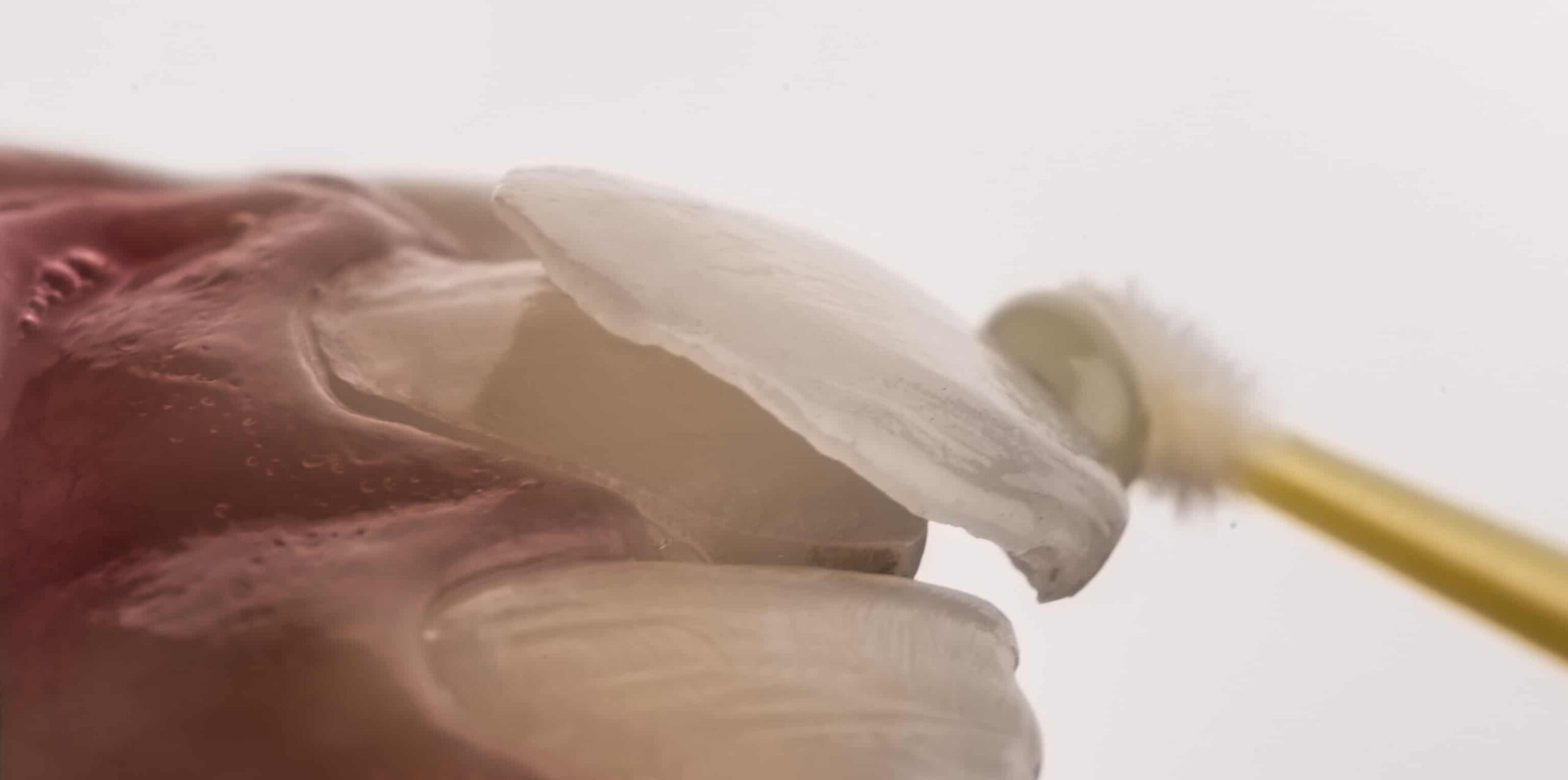
How are Veneers Placed?
Following a consultation with your dentist and your decision to get veneers, it typically takes just two appointments — much faster and more convenient than just about any other type of cosmetic dentistry procedure. One type of veneer, called a “no prep” veneer, may only require one appointment, but these veneers are thinner and may not be appropriate for every patient.
Your First Appointment
At the first appointment, your dental team prepares the tooth for applying the veneer and collects all the information needed to create a veneer of the perfect color and size.
- Your dentist will clean your tooth really well. If you’re particularly sensitive, you’ll also receive a local anesthetic; most patients don’t require this.
- The dental team will match your other teeth to the correct shade of veneer.
- An extremely thin layer of enamel (about 0.5 millimeters) is removed from the tooth to make the veneer easier to apply. This creates enough room for the veneer and it prepares the surface of the tooth to better accept the strong dental adhesive needed to keep the veneer in place.
- The team will take an impression of your tooth so the laboratory can make a perfectly sized veneer.
- Your dentist will place a temporary veneer using just a tiny amount of adhesive in the center of the tooth. The temporary veneer can stay in place for a few days to protect the tooth until the new, permanent veneer is ready.
Your Second Appointment
Next, you’ll schedule a second appointment when the veneer is finished and ready for placement — usually just a few days later. At this second appointment, the veneer will be permanently applied.
- Your dentist removes the temporary veneer and cleans your tooth completely again.
- The veneer is prepared for application of the adhesive, usually by etching the back to make a slightly rough surface. The adhesive is applied to the veneer.
- Your dentist fits the veneer on to the tooth in the proper position and makes sure it fits the space and contour of your tooth.
- The adhesive is cured using a special light, which only takes 60 seconds. After curing, the veneer will be permanently applied to your tooth.
- Your dentist removes any excess adhesive and polishes the sides of the veneer.
You may also schedule a third visit in another week or two where your dentist can check the fit of the veneer and ensure it has adhered properly to the tooth.
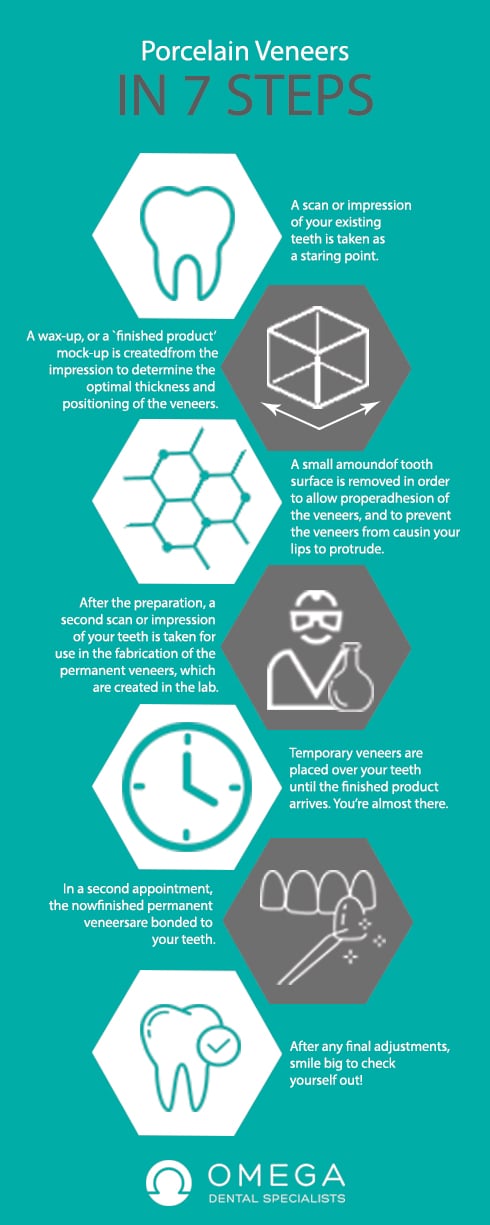
What Precautions Do I Need to Take with New Veneers?
Do plan on a few days to a week of recovery time when you have a veneer placed. During this time, your tooth may be sensitive and you may be asked to take some precautions, such as avoiding gum or difficult-to-chew foods. You may also need to limit exposure to extremely hot or cold foods until your mouth adjusts.
After this short period, you’ll be able to use your tooth as you normally have, with one change: If you’ve been using your teeth as a tool to open packages or cut things, you’ll need to stop. This type of activity isn’t advised for anyone’s teeth and can stress and reduce the lifespan of your veneers. You should also avoid biting down on non-food items like pencils or fingernails.
How Do I Care for My Veneers?
You’ll want to continue to practice excellent oral health care when you have veneers, including brushing with a fluoride toothpaste, flossing and using a dental rinse or mouthwash. It’s also important to schedule regular checkups with your dentist. If you maintain your teeth with veneers like you do your natural teeth, you are no more likely to develop decay.
To protect your veneers and keep them lasting as long as possible, do not use your teeth to open food containers or packages or to chew on any non-food items. If you grind your teeth during sleep, you may need a custom night guard to protect your natural teeth and your veneers.
While porcelain veneers are stain resistant, your dentist may also suggest that you limit exposure to coffee, tea, red wine and other liquids that could potentially lead to stains.
What Do I Do If My Veneer Comes Off?
Although it is rare for a veneer to pop off, it does happen occasionally. Save the veneer so it can be reapplied to your tooth. Do not try to reapply the veneer yourself using household or commercial adhesives. While the veneer is off, you are likely to have increased sensitivities to hot and cold foods; you may want to limit exposure.
Call your dentist immediately for an emergency appointment to re-adhere the veneer. If you’re traveling and need to see another dental professional, please have them call your original dentist’s office before using an adhesive to reattach the veneer.
How Do I Choose the Right Dentist for My Veneers?
While many dentists claim to be able to apply veneers, an extremely experienced dental specialist can be the best practitioner to consult with you and help you evaluate your many options. You’ll also want to work with a dentist who can avoid common pitfalls of veneers, like having them darken or come off due to improper adhesion.
Your reason for wanting veneers can also help you decide on the best dental office to partner with. If you have crooked teeth, working with a dental team that includes orthodontic specialists can also be important so you can accurately determine if veneers are a better solution than braces or Invisalign. If you have receding gums, an office with a periodontist may be the right answer. Ask your dentist if you have questions about their qualifications for placing veneers.
February 15, 2023What Is The Average Cost Of Braces In Houston?
February 01, 2023What You Need to Know About Dental Hygienists?
January 30, 2023What to Expect During the Wisdom Teeth Extraction
October 23, 2022Wisdom Tooth Removal Cost





